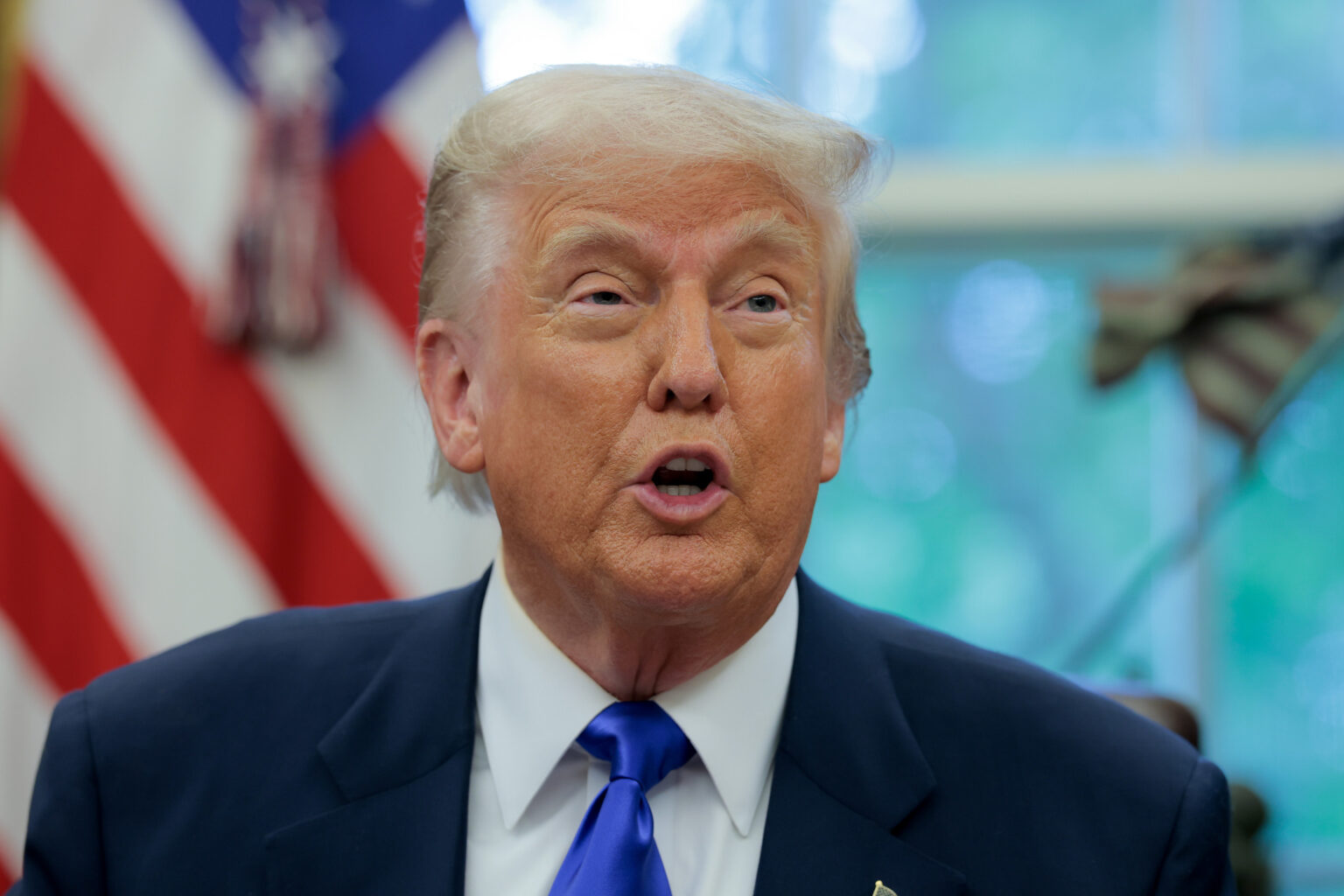Until recently, I was an attorney at WilmerHale, one of the numerous “Big Law” firms currently in Trump’s crosshairs—but one of only a few fighting back. Every law firm to take up that fight has been successful, and those that aren’t fighting are being publicly shamed, suffering dissent in their ranks, and seeing major clients flee. This is exactly the kind of high-stakes, high-profile fight that these law firms brag about winning. So why are most firms not fighting?
It’s because Big Law lawyers are trained to do exactly one thing: protect other people’s interests. Which is exactly what makes them so bad at protecting their own.
Let’s be clear: this is an existential fight, not only for what it means to be a lawyer but for the rule of law itself. Trump’s attacks have primarily taken the form of executive orders directing punitive actions at individual firms. The paper-thin pretext for this punishment is that the firms have “engage[d] in conduct detrimental to critical American interests,” but the real and patently obvious reason is that these firms are associated with Democrats.
This is plainly unlawful. By attacking not only his personal enemies but the lawyers who represent them, Trump is stating loud and clear that people who disagree with him don’t deserve the same legal rights as the people who do. This is an obvious violation of the First Amendment, at minimum, and every judge who has been faced with the question—including those appointed by Republicans—has agreed.
But to date, only five of the targeted firms have fought back. By contrast, more than 10 firms—including the two wealthiest firms in the US—have all capitulated to Trump or helped coordinate another firm’s capitulation. This includes several firms that capitulated pre-emptively—aka made a deal with Trump before they had even been targeted.
What is going on here?
In a word: perspective.
The quandary of working at a Big Law firm is that you become wildly competent within your area of expertise and wildly incompetent even one inch outside it. This is because you spend one hundred percent of your time with people who are exactly like you. Everyone comes from the same 10 or 15 schools. Everyone is excellent with words and bad with numbers. Everyone is book-smart and street-stupid. No matter where you are in a Big Law firm, when you look up from your work, you see yourself looking back—and this is a set of people not exactly known for its diversity.
This creates an echo chamber where a small number of skills get honed endlessly and everything else gets ignored. Trump is taking advantage of exactly that blind spot by going after these firms directly. Because while Big Law lawyers are accustomed to having clients under attack, they have almost zero experience with being under attack themselves. And so, like anyone who is unused to the glare of the spotlight, Big Law firms are panicking and falling back on the lawyerly instinct to retreat to the shadows—which is exactly the wrong instinct for the new situation at hand.
And it is leading some of these firms to make the kinds of basic mistakes they would never make for a client. The biggest and most obvious of which is opening themselves up to long-term liability in order to make the short-term one go away. Because Big Law firms justify their massive cost to their clients by being better at navigating America’s legal system than anyone else. By capitulating to Trump’s attacks on the rule of law, they are helping to undermine that very same legal system—which means undermining the notion that their clients should pay them to navigate it. After all, why would you pay $3,000 an hour for legal expertise when the law doesn’t mean anything?
Similarly, half of what Big Law firms do for their clients is negotiate. But giving your capricious opponent exactly what he asks for the moment he asks for it is a terrible negotiation strategy. These firms may have thought they were going to be able to do some under-the-radar pro bono, but it’s looking more and more like they inadvertently signed up to negotiate Trump’s tariffs and defend police officers accused of misconduct. If conceding was a strategy designed to inoculate these firms against further controversy, it already seems like a pretty bad one.
You might be familiar with the paradox of incompetence: when someone is too incompetent to know that they are incompetent. Now meet its counterpart, the paradox of competence: when someone is so aware of their competence that they refuse to acknowledge its limits. The capitulating law firms are providing a vivid demonstration of the consequences of falling into exactly that paradox, and it’s not looking so great for them—or for the rest of us.
A Big Law firm is a delicate balance. On the one hand, it is a fiercely intellectual enterprise tackling the hardest legal questions in the world. On the other, it is a massively profitable business in which each partner earns millions of dollars a year. When other companies are the clients, those incentives align. But when the law firm itself becomes the client, that calculus gets more complicated.
And as a lawyer, I can tell you firsthand: lawyers are terrible at calculus.
Matthew Wollin is a lawyer and a writer. For five years he was litigator at WilmerHale, focusing on antidiscrimination issues, before leaving to focus on writing. His writing has appeared in Mother Jones, Salon, and The New Republic, among other publications.
The views expressed in this article are the writer’s own.
Read the full article here

